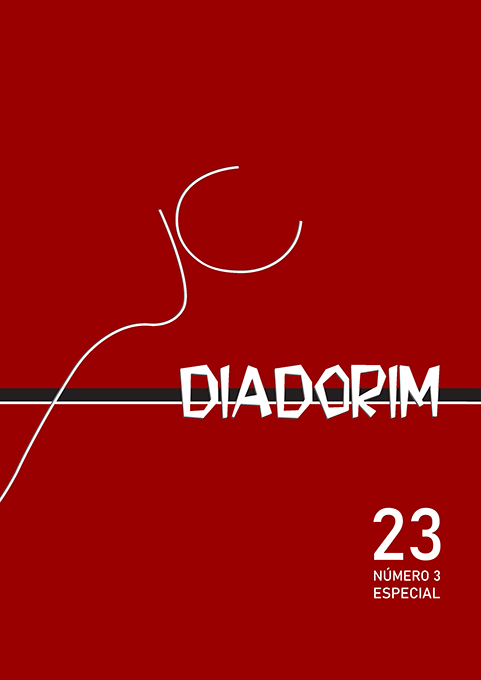From chameleon to tyranossaurus rex - the sociolinguist as a predator
DOI:
https://doi.org/10.35520/diadorim.2021.v23n3a54072Palavras-chave:
Linguistic Variation, Incommensurable Theories, Variable Rule.Resumo
The article discusses the relationship amonst the Theory of Variation and Change and models such as Structuralism and Generative Theory. Against the backdrop of the major controversies that inaugurated the Theory of Variation and Change itself, as well as those surrounding the work of Fernando Tarallo in Brazil, the text addresses the epistemological problem of incorporating hypotheses from other models. It assumes that these theories are incommensurable, and thus non-competing. However, it proposes an epistemological path to overcome the immobility that would result, within the scope of Variationist studies, from the awareness of this incommensurability. Basically, this path consists of taking the portions of language functioning that support the empiricism of such theoretical frameworks – common to the Variationist description – and re-signifying the relationship proposed within the Structural or Generative framework of origin not as the effect of a rule that responds to abstract concepts that only make sense within each frame, but as a force that acts within the scope of the functioning of language.
Referências
BORGES NETO, J.; PAULA MULLER, A.L. Linguistas ou Camaleões? Uma resposta a Tarallo. D.E.l.T.A. São Paulo, Editora da PUC, v. 3, n. 1,47-53, 1987.
FIGUEROA, E. Sociolinguistic Metatheory. Pergamon, Oxford, 1994.
LABOV, W. Sociolinguistic Patterns. Philadelphia, University of Pennsylvania Press, 1972.
_____. Principles of Linguistic Change. Cambridge, MA, Blackwell, 1994.
RAJAGOPALAN, K. “Chameleon-Linguist” and the revival of casuistry: afterthoughts on a controversial suggestion by Fernando Tarallo. DELTA., São Paulo, Editora da PUC, v. 9 n. especial, 1-10, 1993.
TARALLO, F. (1986) Zelig, um camaleão linguista. DELTA. São Paulo, Editora da PUC, v.2, n. 1, 85-95.
WEINREICH, U., LABOV, W. & HERZOG, M. (1968). Empirical foundations for a theory of language change. In: LEHMAN, W.; Malkiel Y. (eds.) Directions for historical linguistics. Austin, University of Texas Press. 97-195, 1968.
Downloads
Publicado
Edição
Seção
Licença
Transferência de direitos autorais - Autorização para publicação
Caso o artigo submetido seja aprovado para publicação, já fica acordado que o autor autoriza a UFRJ a reproduzi-lo e publicá-lo na Diadorim: Revista de Estudos Linguísticos e Literários, entendendo-se os termos "reprodução" e "publicação" conforme definição respectivamente dos incisos VI e I do artigo 5° da Lei 9610/98. O artigo poderá ser acessado pela internet, a título gratuito, para consulta e reprodução de exemplar do artigo para uso próprio de quem a consulta. Essa autorização de publicação não tem limitação de tempo, ficando a UFRJ responsável pela manutenção da identificação do autor do artigo.

A Revista Diadorim utiliza uma Licença Creative Commons Atribuição-NãoComercial 4.0 Internacional (CC BY-NC 4.0).

